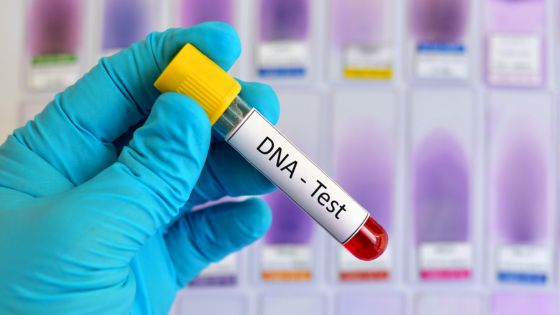Legal disputes involving father-child relations can be complex and emotional. DNA testing is one of the most effective ways to determine paternity and resolve these disputes. DNA testing can provide conclusive evidence of whether a man is a child’s biological father and can play a crucial role in resolving legal disputes. This article will discuss the roles that DNA testing can play in resolving legal disputes involving father-child relations.
Establishing Father-child Relationships
One of the primary roles of DNA testing in legal disputes involving father-child relations is establishing father-child relationships. DNA testing can accurately determine whether a man is the biological father of a child with a high degree of accuracy. DNA testing can be the most reliable way to determine father-child relationships without other evidence, such as birth or marriage certificates.
Establishing father-child relations can have significant legal implications, including child support, custody, and visitation rights. In cases where a father is unwilling to acknowledge the relationship or doubts the father’s identity, DNA testing can provide definitive answers and establish legal rights and responsibilities.
Resolving Child Support Disputes
Another role of DNA testing in legal disputes involving father-child relations is resolving child support disputes. When a child’s biological father is known, he is typically legally obligated to provide financial support. However, in cases where father-child relationships are in question, establishing the relationship through DNA testing can be crucial in determining child support obligations.
DNA testing can also be used to prove that a man is not the biological father of a child, which can be crucial in cases where a man is paying child support for a child that is not his. DNA testing can provide conclusive evidence that can be used to modify or terminate child support orders.
Establishing Custody and Visitation Rights
In legal disputes involving father-child relations, DNA testing can also play a role in establishing custody and visitation rights. In cases where the father-child relation is in question, establishing the relation through DNA testing can be crucial in determining custody and visitation rights.
If a man is determined to be the biological father of a child, he may be entitled to custody or visitation rights, depending on the circumstances. DNA testing can provide conclusive evidence of relation, which can be used to establish these rights.
Resolving Inheritance Disputes
In some cases, legal disputes involving father-child relations can also involve inheritance disputes. When people die without a will, their assets are typically distributed according to state laws. If the deceased person has a child, that child may be entitled to a portion of the estate.
However, if the relationship is in question, DNA testing can be used to establish whether or not the child is entitled to inherit from the deceased person. DNA testing can provide conclusive evidence of the relation, which can be used to resolve inheritance disputes.
Protecting the Rights of the Child
Ultimately, the most crucial role of DNA testing in legal disputes involving father-child relations is protecting the child’s rights. DNA testing can provide evidence to establish legal rights and responsibilities, including child support, custody, and visitation rights. DNA testing can help ensure that children are protected and provided for by providing conclusive evidence of the relationship.
Conclusion
DNA testing has become critical in resolving legal disputes involving father-child relations. It offers high accuracy and reliability, making it a valuable resource for courts and legal professionals. DNA testing can establish paternity with a high degree of certainty, which is essential in cases where child support or custody is being determined. It can also help protect the rights of fathers seeking access to their children.




















